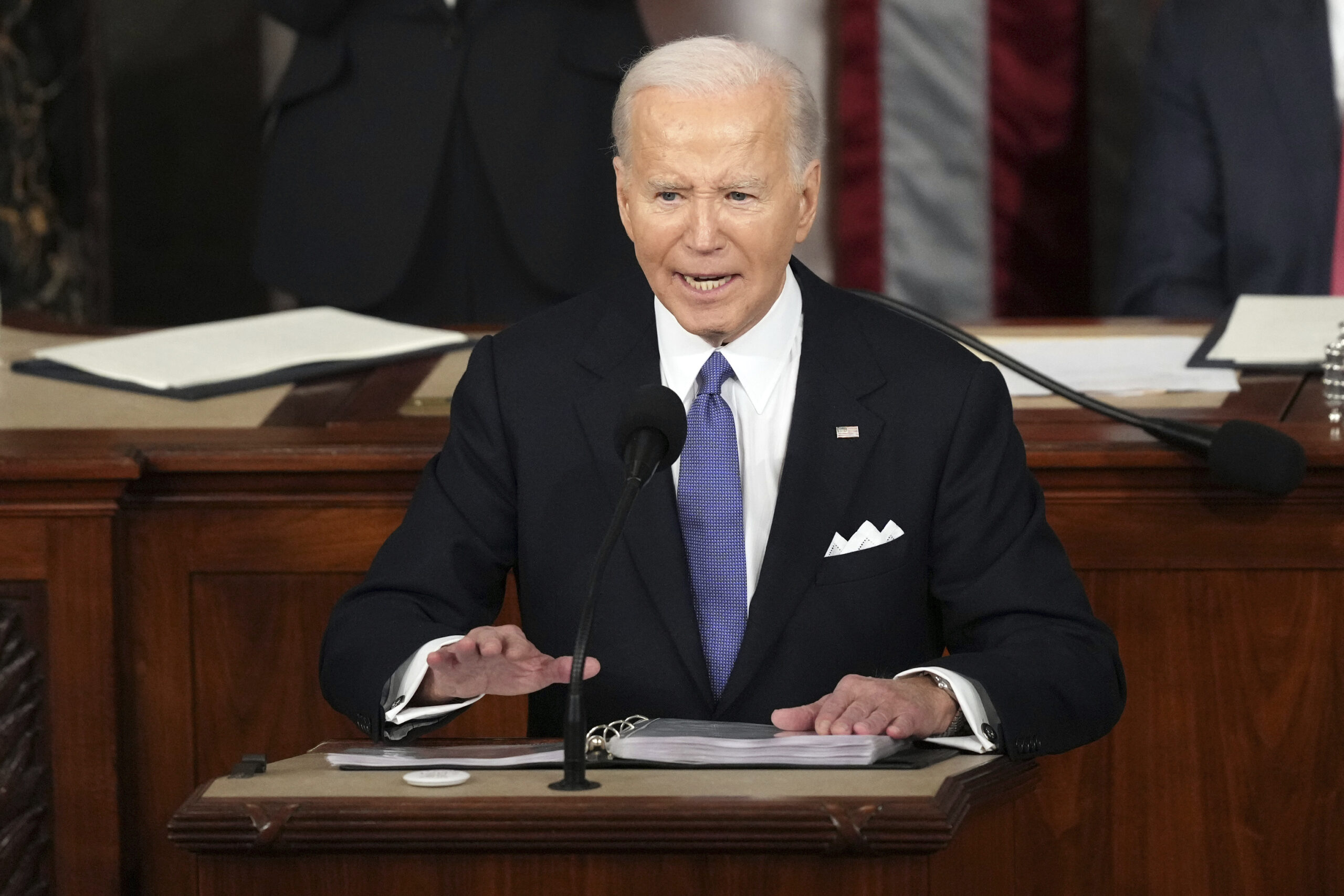

The White House on Monday released a proposed budget for fiscal 2025 that contains a wish list of tax increases and spending proposals favored by Democrats.
The budget includes $7.3 trillion in spending and a $5.5 trillion in tax revenue, bringing the deficit for 2025 to nearly $1.8 trillion.
The proposals for new federal spending programs and taxes will not become law this year, given Republican control of the House of Representatives. But they provide a sense of what initiatives President Joe Biden would pursue if he wins a second term.
During a call with reporters, Shalanda Young, the director of the Office of Management and Budget, touted progress the economy has made on inflation and emphasized the positive aspects of the economy under Biden’s just over three years in office.
“This year’s budget comes at a time when it’s clear that the president’s economic strategy of building the economy from the middle out and bottom up is working,” she told reporters. “The economy has added about 15 million jobs. The unemployment rate has remained under 4% for over two years in a row, that’s the record, while inflation has fallen by two-thirds.”
The budget would significantly raise taxes, from roughly 18% of GDP to over 20%. But it would not close the deficit in the 10-year budget window and would see the federal debt held by the public rise as high as 106% of GDP.
Biden’s budget includes raising the headline corporate tax rate from 21% to 28%, a push he has unsuccessfully made in the past. The 2017 tax cuts, championed by then-President Donald Trump, lowered the corporate rate from 35%.
Biden also wants to raise the corporate minimum tax from 15% to 21% and introduce more stringent limits on corporations’ ability to deduct wages of high-paid employees, according to the White House.
Biden has made it his goal to increase taxes not only on corporations but also on the wealthiest. The president has vowed not to raise taxes on those making less than $400,000 per year, although he has come out fervently in favor of soaking the very wealthy — Congress, though, has blocked most of those efforts.
In the latest budget request, the White House also calls for a 25% minimum tax for billionaires. That provision would only affect the wealthiest 0.01% of taxpayers, according to the White House.
Raising the corporate tax rate to 28% would raise some $1.35 trillion over the next decade or so, according to the administration’s latest budget projections, which were released on Monday, while the billionaire minimum tax plan would bring in about $500 billion over that same period.
Also in the proposed budget are housing provisions. Housing affordability is at record lows as mortgage rates remain prohibitive and housing supply languishes. To address this, the administration has proposed a few changes, although critics say it would do little to help housing supply and, paradoxically, could even make the situation worse by dialing up demand.
Among the proposals is providing a $5,000 tax credit for middle-class first-time homebuyers for two years, described as a form of mortgage relief.
The president is also asking Congress to approve a $10,000 credit for those who sell their starter homes. The administration described that credit as a response to the decrease in supply because pandemic-era homebuyers aren’t putting their homes on the market because of the higher mortgage rates. Those proposals would cost an estimated $183 billion through 2034.
Biden’s budget also calls for a national, comprehensive paid family and medical leave program, providing up to 12 weeks of leave for eligible workers. That would cost some $325 billion over the next decade or so.
The proposal also includes expanding the child tax credit to the supercharged level it was temporarily at as part of the pandemic-era American Rescue Plan Act, which passed with no Republican support.
The current tax credit is $2,000 a child. The 2021 Democratic legislation raised it to $3,600 for children under 6 and $3,000 for older children, with perhaps the biggest change being the removal of an income threshold for those who receive the funds. Thus, a family with no income or head of household working would also receive the full $3,600 or $3,000 payments. The boosted tax credit sunset at the end of 2021.
Reinstating the enlarged child tax credit would cost an estimated $310 billion through 2034.
The budget also includes funding to hire 1,300 additional Border Patrol agents, 1,000 additional Customs and Border Protection officers, an additional 1,600 asylum officers and support staff, and nearly $850 million “for cutting-edge detection technology at ports of entry.”
“In October 2023, the administration transmitted an emergency supplemental request for managing the southwest border and migration totaling $13.6 billion,” the White House said in a Monday release. “The budget includes, and therefore reiterates the need for, the unmet needs from the October supplemental request.”
CLICK HERE TO READ MORE FROM THE WASHINGTON EXAMINER
Taken together, the new budget proposal is a wish list for Democrats heading into the election, although several of the proposals are somewhat aspirational as even some Democrats, such as Sens. Joe Manchin (D-WV) and Kyrsten Sinema (I-AZ), have opposed them in the past.
The budget can largely be viewed as a messaging plan heading into November, which is expected to feature a matchup between Biden and Trump, who appear headed to win their nominations later this year.







